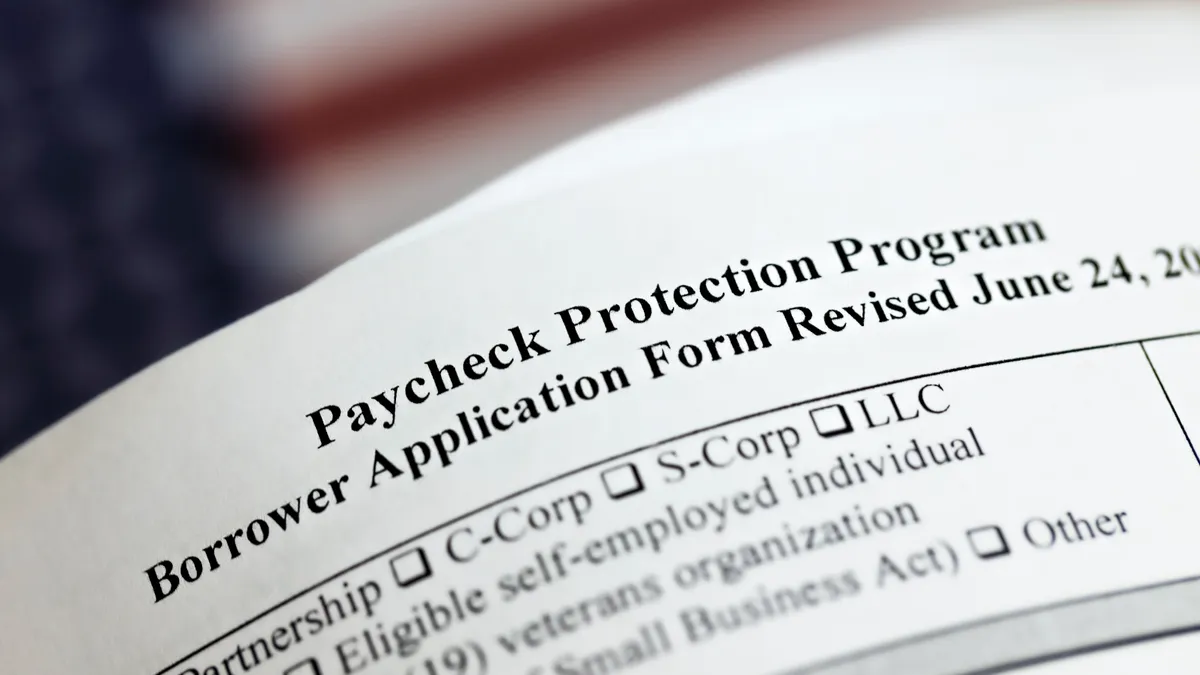Dive Brief:
- Blueacorn co-founder Nathan Reis pleaded guilty to conspiracy to commit wire fraud in connection with a scheme to collect COVID-19 relief money, the Justice Department said Monday.
- Reis, 47, worked with others to submit false and fraudulent Paycheck Protection Program loan applications during the COVID-19 pandemic, including by fabricating documents that falsified income and payroll figures to receive loan funds for which they were ineligible, the DOJ said.
- Reis’s wife and co-founder, Stephanie Hockridge, was found guilty of conspiracy to commit wire fraud after a week-long trial in June. The two were indicted on fraud and conspiracy charges last November. Hockridge was acquitted of four counts of wire fraud.
Dive Insight:
Reis and his wife, Stephanie Hockridge, started Blueacorn in April 2020. The fintech claimed to connect small business owners with PPP loans through the Small Business Administration during the pandemic.
Reis, Hockridge and their co-conspirators submitted fraudulent loan applications containing false information to make more money, fabricating tax documents and bank statements, the DOJ said. Reis and his co-conspirators charged borrower’s fees based on a percentage of the funds received, prosecutors said.
Reis is scheduled to be sentenced Nov. 21 and faces up to 20 years in prison.
“During a national emergency, this defendant exploited a taxpayer-funded program that individuals and small businesses desperately needed to survive,” said Acting Assistant Attorney General Matthew R. Galeotti in a news release. “This conviction demonstrates the Department’s ongoing commitment to bring to justice those who would steal from the public fisc to enrich themselves.”
Blueacorn collected about $1 billion in PPP fees, and the fintech pursued higher fees by prioritizing – and applying less scrutiny to – high-dollar loans, a House subcommittee report detailed in 2022. Blueacorn and fintech Womply were barred from working with the SBA after the report was released.
“Blueacorn’s ownership directed reviewers to prioritize ‘monster loans [that] will get everyone paid,’” while urging staff to dismiss applications for smaller loans, the report said.













